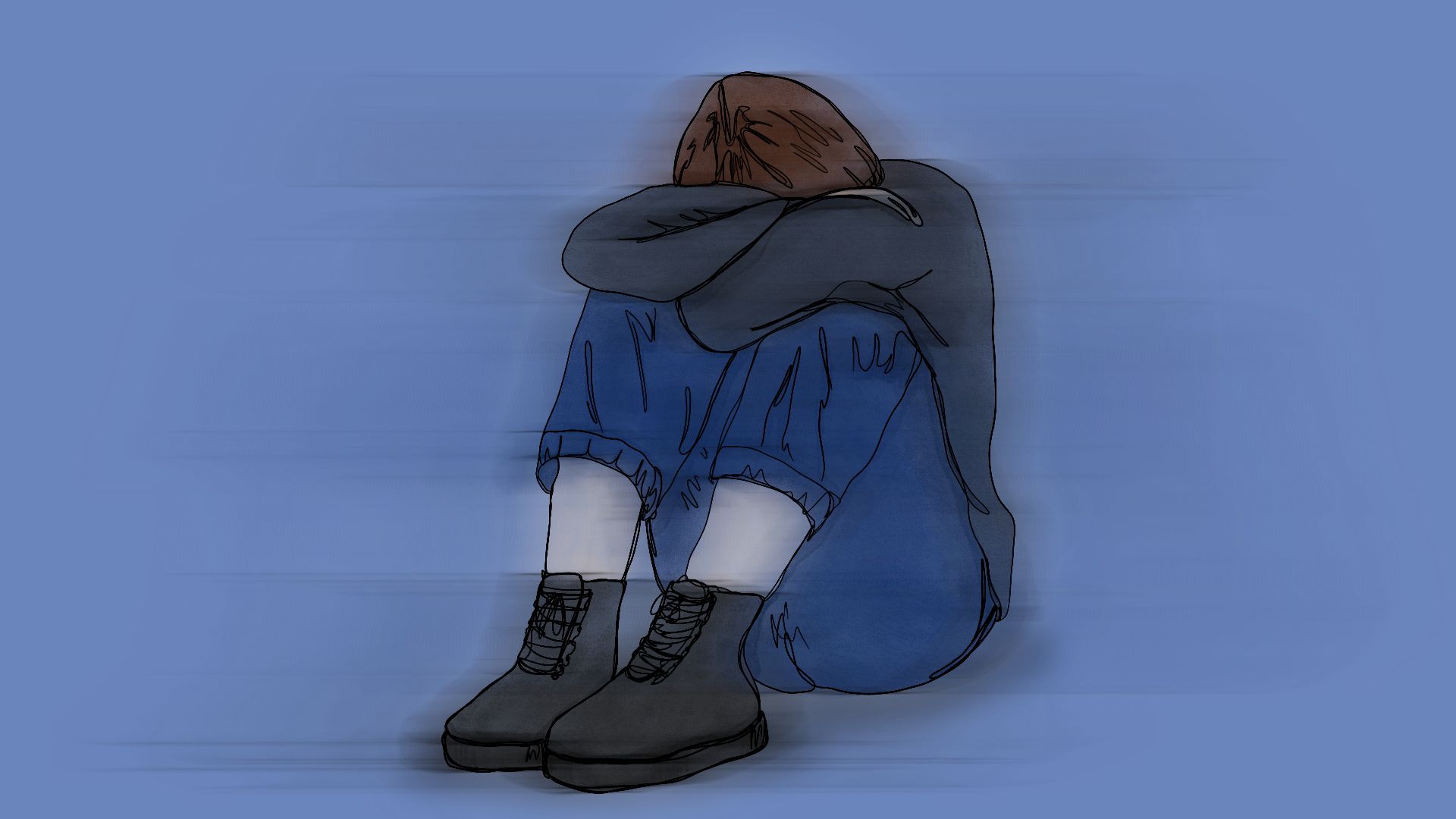Most people go through difficult periods, but some also experience depression. A difficult period often follows a period of stress or relational problems. Perhaps you're struggling in one or more subjects, going through a heartbreak, or feeling that your relationship with a friend or family member is complicated?
When the accumulation of stress becomes overwhelming over time, it's common to feel down. Typical for difficult periods is starting to doubt oneself, feeling sad a lot, and having many negative thoughts, but these feelings usually pass within a few weeks. Similar changes can also occur during depression, but there are some important differences.
Duration and variability of emotions
A difficult period is shorter in duration, and emotions fluctuate more. During a difficult period, you may feel very sad, but positive events can alleviate the sadness. When the feelings of sadness persist for a longer period and there are fewer fluctuations, there is a greater risk of depression. It is often said that when you have felt continuously down without variation for more than 2 weeks, it is a symptom of depression.
When you have depression, it's difficult to experience joy. Even when something positive happens, the sadness or emptiness doesn't dissipate. Others' happiness may feel incomprehensible and difficult to share. It's common to withdraw because of the fear that others will notice the sadness and perhaps become "infected" by it. This is another sign of depression, having an amplified and unrealistic sense of guilt.
Thinking about the present, past, and future
Many people with depression describe a change in their thinking. Sadness colors how they perceive the world and people around them. Thoughts become characterized by pessimism and negative aspects of oneself, others, the past, and the future. Such negative thoughts can lead to feelings of hopelessness, restlessness, and anxiety.
When someone has depression, others often react to the pessimism and negativity in their thinking, which happens less frequently during a difficult period because thoughts are often realistic in relation to what is happening or has happened. Many people with depression acknowledge that their thinking is unrealistically negative, but they still can't help believing in it.
Self-image in lasting or transient change
During a difficult period, you may experience a temporary decline in self-image, but it normalizes or adjusts quickly. For a person with depression, it's common to have negative thoughts about oneself over an extended period, and as these negative thoughts take root, it also becomes difficult to believe that other people can like them. As a result, a person with depression may withdraw socially, missing out on social situations where they could receive support, positive attention, and opportunities to adjust the negative thoughts.
Impairment in everyday functioning with depression
Everyday functioning refers to how well you manage your daily tasks, such as learning at school, maintaining friendships, sleep, food, hygiene, and finances. With depression, the ability to handle one or more of these tasks is often impaired over time. Many students with depression struggle with concentration, leading to difficulties in submitting schoolwork on time, and it can be challenging to complete exams and assignments. For a person with depression, being impulsive and spontaneous can be challenging. The body may feel like a heavy burden, and it can seem almost impossible to initiate daily activities, such as preparing meals or taking care of personal hygiene.
Minor or major stressful events
It happens to all of us, often many times in life. Reacting with sadness, hopelessness, and/or fear is human and not dangerous. Going through difficult periods can strengthen you and make you wiser about who you are and what it means to live. If you suspect that you have depression, you should seek help. For example, student welfare organizations have psychologists and counselors who can assist you. You can also visit your general practitioner to obtain a referral to a psychologist.
